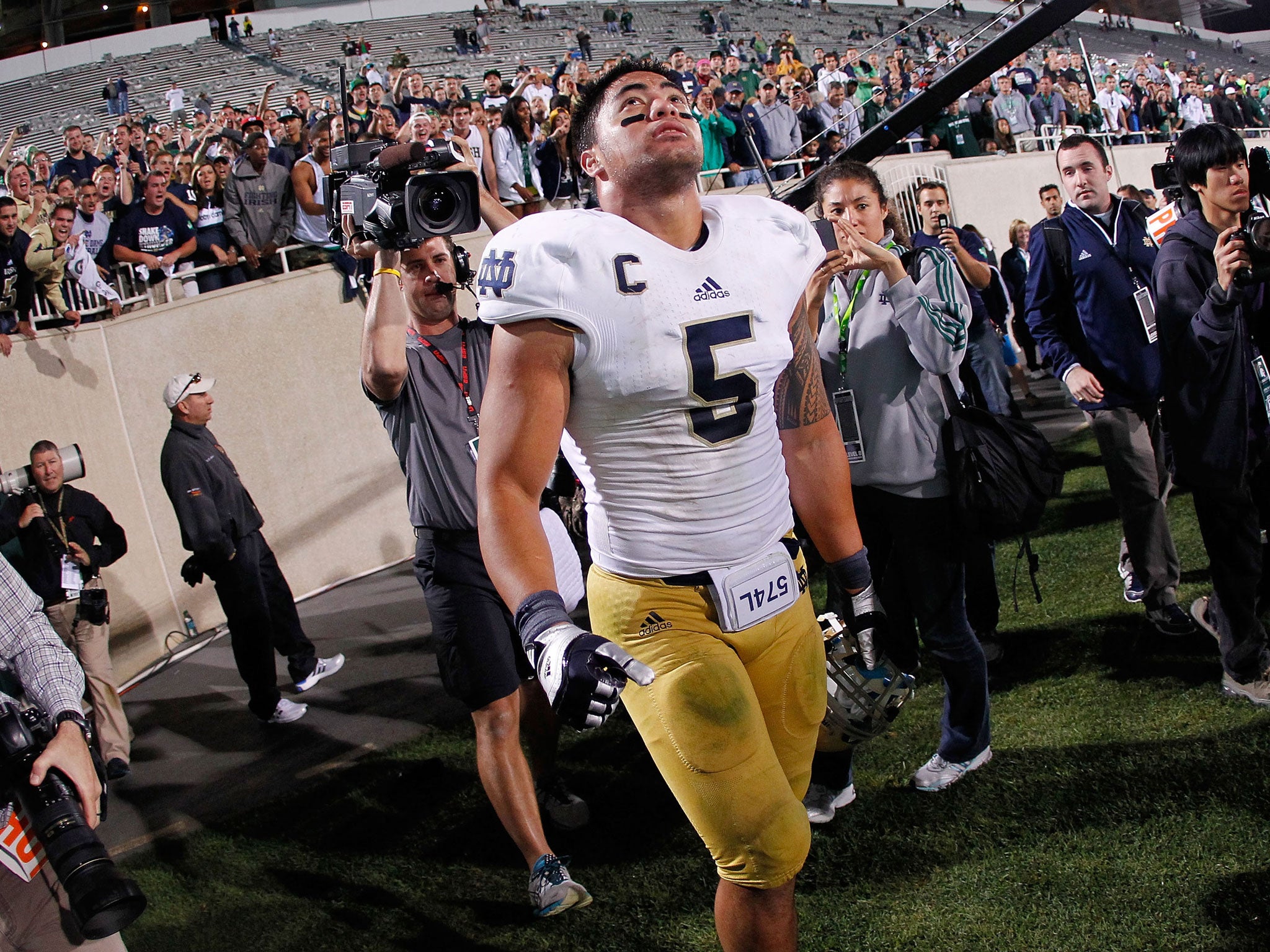The Independent's journalism is supported by our readers. When you purchase through links on our site, we may earn commission.
The Manti Te'o mystery: Why does Notre Dame care more about a fictional dead girl than a real one?
College football is big news and big money in America, but there's a darker aspect of the culture that needs to be taken more seriously.

Your support helps us to tell the story
From reproductive rights to climate change to Big Tech, The Independent is on the ground when the story is developing. Whether it's investigating the financials of Elon Musk's pro-Trump PAC or producing our latest documentary, 'The A Word', which shines a light on the American women fighting for reproductive rights, we know how important it is to parse out the facts from the messaging.
At such a critical moment in US history, we need reporters on the ground. Your donation allows us to keep sending journalists to speak to both sides of the story.
The Independent is trusted by Americans across the entire political spectrum. And unlike many other quality news outlets, we choose not to lock Americans out of our reporting and analysis with paywalls. We believe quality journalism should be available to everyone, paid for by those who can afford it.
Your support makes all the difference.Last week a story broke that caught the hearts and minds of millions: Manti Te’o, a star college athlete at Notre Dame University, had been the victim of a cruel hoax akin to the 2010 movie Catfish. He had had a long internet relationship with a girl who he loved, and who tragically died. Except she didn’t die, because she never existed.
The internet at large has announced Te’o a hero, sharing sympathies, and the Notre Dame administration has rallied round him to offer their support. The athletic director of the college took part in a 40-minute-long press conference yesterday, during which he actually cried for the sake of poor Manti. No offence, but, you know, nobody died.
In 2010, though, a young woman connected to Notre Dame football did die. Lizzy Seeberg, a first year student, killed herself eight days after reporting a Notre Dame footballer for sexual assault. It is widely believed that her allegation was handled in a wholly repugnant manner by the college administration, which will be no surprise to those following the gang rape case involving high school athletes in Steubenville, Ohio. That case sees entitled young men protected by a wall of institutional silence and the intimidation of a young victim. Similarly, Seeberg found the administration and the police in Notre Dame unhelpful and herself the victim of harassment and intimidation from friends of the player, one of whom told her “Don’t do anything you would regret. Messing with Notre Dame football is a bad idea.” The accused himself, despite being reported to police and the college, was not even interviewed until five days after her death, over a fortnight after the original allegation.
The Notre Dame police were largely uncooperative with Seeberg; her mother recalls, "They said they were pretty busy because it's football season and there's a lot of underage drinking." The college administration was similarly hands-off.
In comparison, a private investigator has been hired by Notre Dame to get to the bottom of the Te’o hoax, an event in which nobody died or was physically hurt. Should the perpetrator be found, we can only assume that they will be harshly punished via trial by media at the very least, for “messing with Notre Dame football”.
The motivation behind the silence, and the alleged collusion between police and college to keep that silence absolute, if true, is a complex and worrying thing. There is an undeniable tendency to see these athletes as good young men: the lawyer of Seeberg’s accused assailant argued that Seeberg was the aggressor, that the accused’s reaction to her advances was to “put a stop to it, because his parents had taught him that was wrong.” It appears that the culture of academic football is a cornerstone of so many communities that it is easier and more comfortable to indulge in victim blaming and rape apology than to consider examining this obsession with the nice guy athlete.
It is the hullabaloo around the Te’o case that makes the silence around Seeberg and countless other reports of the rampant rape culture in college football all the more deafening. Already storm clouds are gathering, as people demand to know why Notre Dame cares more about the fictional death of a fictional woman, than the tragic suicide of a sexual assault victim who was all but disowned by those with a duty of care to protect her.
Why should Te’o deserve justice, when none has been afforded the countless young women and children raped and assaulted by college and high school athletes?
Join our commenting forum
Join thought-provoking conversations, follow other Independent readers and see their replies
Comments